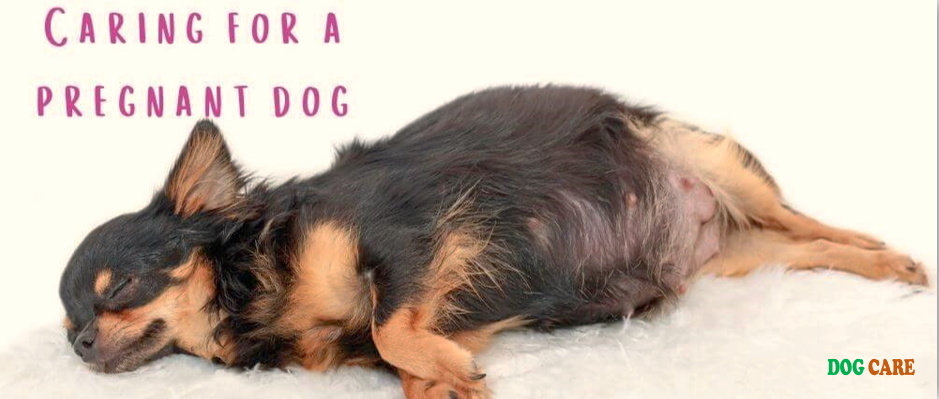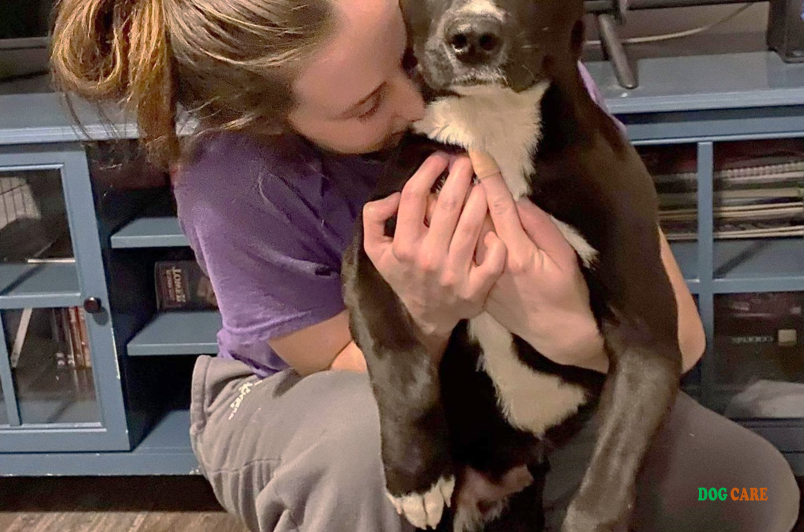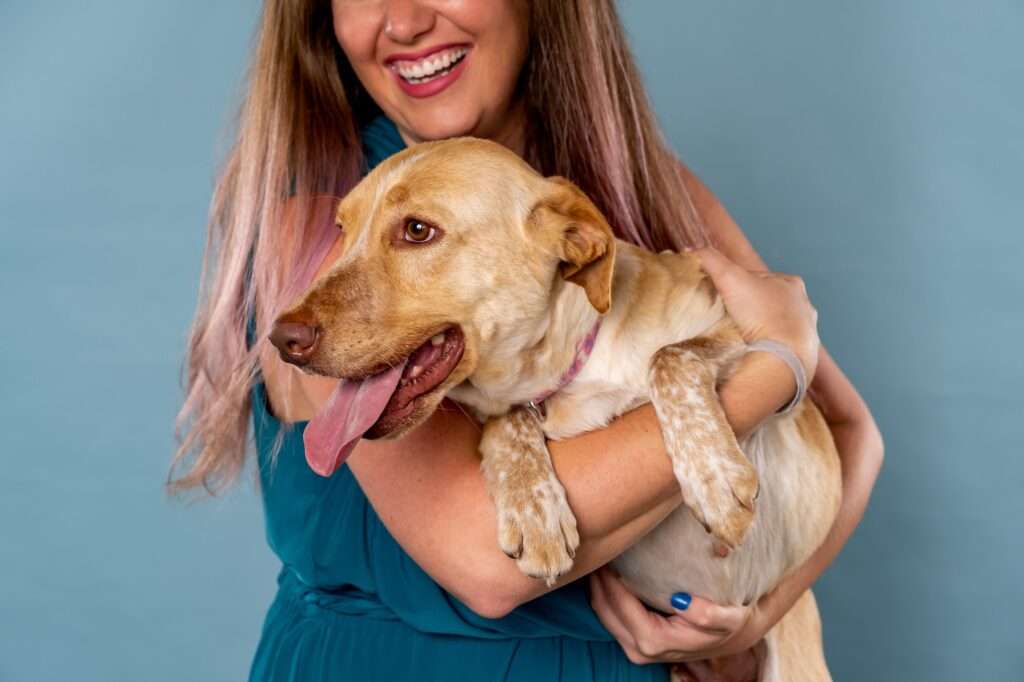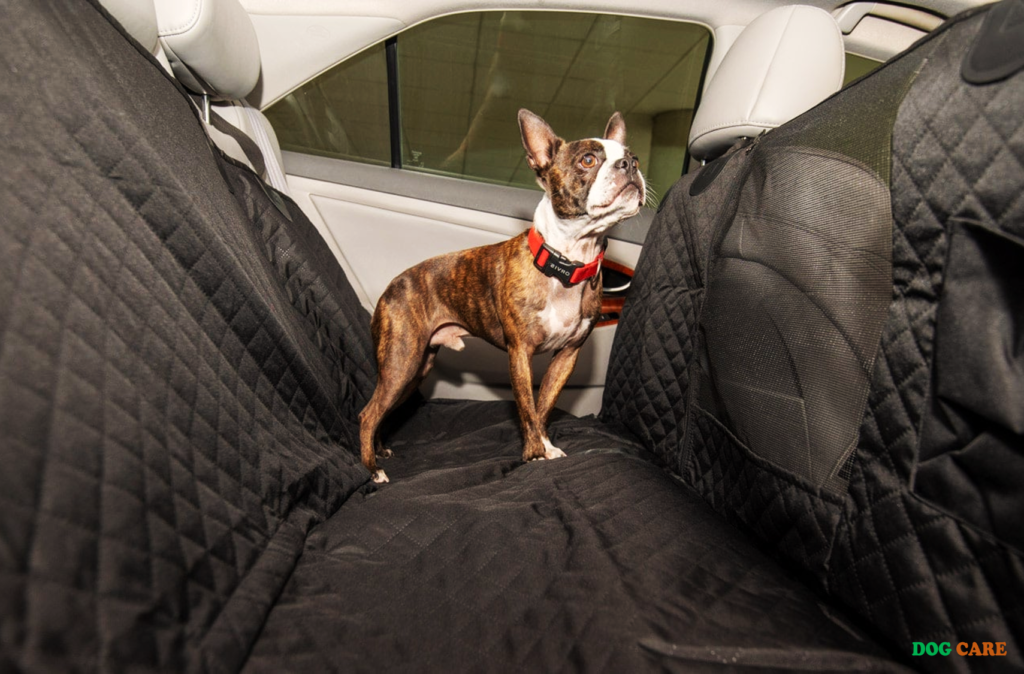How to Take Care of a Pregnant Dog at Home – To take care of a pregnant dog at home, provide a balanced diet and ensure regular veterinary check-ups. Proper care and attention during pregnancy are crucial for the health and well-being of a pregnant dog.
As a responsible pet owner, it is essential to understand the specific needs and requirements of a pregnant dog to provide her with the best care possible. This article will guide you on how to take care of a pregnant dog at home, covering important aspects such as nutrition, exercise, hygiene, and veterinary care.
By following these guidelines, you can ensure a safe and comfortable pregnancy for your beloved furry friend. So, let’s delve into the details of how to provide optimal care for a pregnant dog during this special period.

Preparing For Pregnancy
Taking care of a pregnant dog at home requires attention to nutrition, exercise, and regular vet check-ups. Provide a comfortable and safe environment for your furry friend to ensure a healthy pregnancy.
Ensuring A Healthy Environment
Creating a healthy environment for your pregnant dog is crucial. In order to ensure her well-being and the safe development of her puppies, there are a few important steps you can take. Firstly, provide a comfortable and secluded area for your dog to rest and relax. This will help minimize stress and promote a peaceful environment for her to give birth.
Make sure the designated area is warm, clean, and free from any hazards that could harm the mother or her puppies. Remove any toxic plants, chemicals, or sharp objects that could pose a danger to them. Additionally, consider providing a whelping box or crate where your dog can feel secure and give birth comfortably.
To further maintain a healthy environment, keep the area well-ventilated and free from excessive noise or disturbances. Limit visitors and other pets’ access to the area to reduce stress for your pregnant dog. Ensuring a quiet and soothing atmosphere will contribute to a stress-free pregnancy for her.
Consulting With A Veterinarian
Before and during your dog’s pregnancy, it is vital to consult with a veterinarian. A professional with expertise in canine reproductive health can provide invaluable guidance and ensure the well-being of both the mother and her pups. Take your pregnant dog for regular check-ups to monitor her health and the progress of the pregnancy.
During these visits, your veterinarian can advise you on essential care practices specific to your dog’s needs. They can recommend a suitable diet to support her nutritional requirements throughout her pregnancy. It’s important to follow their recommendations on feeding, as proper nutrition plays a significant role in the health of the mother and the development of the puppies.
Your veterinarian can also provide important information on prenatal vitamins, vaccinations, and parasite prevention to keep your dog and her unborn puppies protected. They can guide you in identifying any potential complications or warning signs that may require immediate medical attention.
Nutrition And Diet : How to Take Care of a Pregnant Dog at Home
Proper nutrition plays a vital role in maintaining the health and well-being of a pregnant dog. Ensuring that your furry companion receives a balanced diet and essential nutrients is essential for a successful and healthy pregnancy. Here are some guidelines to help you provide the necessary nutrition and diet for your pregnant dog:
Providing A Balanced Diet
A balanced diet is essential during pregnancy to support the growth and development of the unborn puppies. Your pregnant dog’s diet should consist of high-quality dog food that is specifically formulated for the nutritional needs of pregnant and lactating dogs. Make sure the dog food you choose is rich in:
- Protein – Essential for muscle growth and development
- Fat – Provides energy and aids in the absorption of fat-soluble vitamins
- Carbohydrates – A source of energy for the mother
- Vitamins and minerals – Important for overall health and development
It is important to feed your pregnant dog multiple small meals throughout the day instead of one large meal. This will help prevent any discomfort due to an expanded abdomen and reduce the risk of conditions like bloat.
Supplementing With Prenatal Vitamins
In addition to a balanced diet, it is recommended to supplement your pregnant dog’s nutrition with prenatal vitamins. Prenatal vitamins specifically formulated for dogs provide additional nutrients that are important for the development of the puppies and the overall well-being of the mother. These vitamins typically contain higher levels of folic acid, iron, and calcium, which are essential for a healthy pregnancy.
Consult your veterinarian to determine the right type and dosage of prenatal vitamins for your pregnant dog. It is important to follow their recommendations and not supplement with human prenatal vitamins, as they may contain ingredients that could be harmful to dogs.
Remember, providing a balanced diet and proper supplementation is crucial for the health and well-being of your pregnant dog. By ensuring she receives the necessary nutrients, you are contributing to the healthy development of the puppies and helping your dog have a successful pregnancy.
Exercise And Physical Activity
Exercise plays a crucial role in maintaining the overall health and wellbeing of a pregnant dog. Adequate physical activity not only helps to keep her in shape but also ensures a smooth pregnancy and delivery. However, it’s important to follow a moderate exercise schedule and avoid strenuous activities to prevent any harm to the mother or her developing puppies.
Moderate Exercise Schedule
A pregnant dog should engage in regular but moderate exercise to keep her muscles toned and stimulate blood circulation. Creating a daily exercise schedule can help in maintaining a healthy balance. It is recommended to take her for walks at least twice a day, but remember to keep the duration and intensity of the exercise moderate. Each walk should last for around 30 minutes, allowing the dog to gradually build up stamina without overexertion.
Additionally, consider incorporating gentle activities such as swimming or hydrotherapy into her routine. These low-impact exercises can provide excellent cardiovascular benefits for the pregnant dog without placing too much stress on her joints.
Avoiding Strenuous Activities
During pregnancy, a dog’s body undergoes significant changes, and strenuous activities can pose risks to both the mother and her puppies. It’s essential to avoid any activities that involve high jumps, intense running, or rough play. These activities may lead to injuries or premature labor.
Moreover, be cautious when engaging in activities that require a lot of balance or agility, as the dog’s center of gravity shifts during pregnancy. This means activities like agility training or high-impact sports should be avoided or modified to suit her condition.
Always closely monitor your dog during exercise and pay attention to any signs of exhaustion or discomfort. If you notice changes in her energy levels, breathing, or behavior, it’s best to consult with a veterinarian. They can provide specific recommendations based on your dog’s individual needs and health status.
Monitoring Health
Proper monitoring of a pregnant dog’s health is essential to ensure the well-being of both the mother and the developing puppies. Regular veterinary check-ups, along with a close eye on any potential issues, are key to maintaining a healthy pregnancy. Read on to learn more about how to effectively monitor the health of your pregnant dog at home.
Regular Veterinary Check-ups
Regular veterinary check-ups are crucial during a dog’s pregnancy. Schedule appointments with a trusted veterinarian to ensure that your dog receives the appropriate care and necessary vaccinations at each stage of her pregnancy. These check-ups allow the vet to monitor the dog’s weight, address any concerns, and make recommendations for proper nutrition and exercise.
Identifying Potential Issues
Diligently watching for any potential health issues in your pregnant dog is an important responsibility. By being observant and alert, you can detect and address any problems quickly, potentially saving the lives of both the mother and her puppies. Below are some common signs and symptoms that may indicate an issue:
- Changes in appetite or water intake.
- Weight loss or gain that deviates from the expected progression.
- Abnormal discharge or bleeding from the vagina.
- Restlessness, discomfort, or excessive panting.
- Excessive vomiting or diarrhea.
If you notice any of these signs or any other unusual behavior, it is crucial to contact your veterinarian immediately for guidance and advice.
Preparing For Delivery : How to Take Care of a Pregnant Dog at Home
Pregnancy is an exciting and precious time for both you and your furry friend. As the due date approaches, it’s essential to prepare a safe and comfortable environment for your pregnant dog to give birth. Creating a whelping area, knowing the signs of labor, and having the necessary supplies ready can help ensure a smooth delivery process.
Creating A Whelping Area
Designating a whelping area for your pregnant dog is crucial for her comfort and the safety of the puppies. Here are some key considerations to create a suitable space:
- Choose a quiet and calm location: Find a secluded area away from loud noises and excessive foot traffic. This will help your dog feel at ease during the labor and nursing process.
- Provide a cozy and clean bedding: Line the whelping box with layers of soft, washable bedding to keep your dog and puppies warm and comfortable. Blankets and towels can be easily washed and replaced as needed.
- Ensure proper temperature: Maintain an ambient temperature between 75-85°F (24-29°C) in the whelping area. Use heating pads or heat lamps, if necessary, to keep the area warm but not too hot.
- Puppy-proof the area: Remove any potential hazards or objects that could harm the pregnant dog or the newborn puppies. Ensure wires, chemicals, and small objects are out of reach.
Knowing Signs Of Labor
Recognizing the signs of labor can help you prepare for the actual delivery. Keep a close eye on your pregnant dog and watch out for the following indications:
- Restlessness: Your dog may exhibit signs of agitation and restlessness, unable to find a comfortable position.
- Nesting behavior: The urge to create a nest-like area by scratching at the bedding or seeking secluded spots.
- Drop in body temperature: Measuring your dog’s temperature daily will help you notice a sudden drop of around 1-2°F (0.5-1°C) up to 24 hours before labor.
- Increase in panting and pacing: Your dog may pant excessively and exhibit anxious movements.
- Loss of appetite: A decrease in food intake or a complete loss of appetite is common right before labor begins.
Monitoring your dog closely and noting these signs will allow you to provide the necessary support during the delivery process.Frequently Asked Questions On How To Take Care Of A Pregnant Dog At Home

How Long Is The Gestation Period For A Pregnant Dog?
The gestation period for a pregnant dog is approximately 63 days.
What Are The Signs That A Dog Is Pregnant?
Signs that a dog is pregnant include decreased appetite, enlarged nipples, and abdominal swelling.
How Can I Provide Proper Nutrition To A Pregnant Dog?
Ensure a pregnant dog receives a balanced diet with high-quality dog food that meets her nutritional needs.
Can A Pregnant Dog Continue Her Regular Exercise Routine?
A pregnant dog should have regular exercise, but it should be gentle and low-impact to avoid putting too much stress on her body.
What Preparations Should I Make For The Birth Of The Puppies?
Create a quiet and comfortable whelping area, gather necessary supplies like clean towels and heating pads, and have contact information for a veterinarian on hand.
Conclusion
To sum it up, caring for a pregnant dog at home requires attention, knowledge, and dedication. By providing proper nutrition, regular veterinary check-ups, a quiet and safe space, and plenty of love and exercise, you can ensure the health and well-being of your furry friend during this special time.
Additionally, always consult with a veterinarian to address any concerns or complications that may arise. Remember, the key is to make the experience as comfortable and stress-free as possible for your pregnant dog. Happy caring!
How to Take Care of a Pregnant Dog at Home


